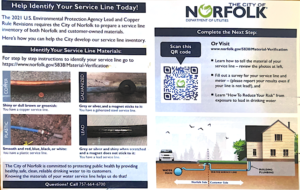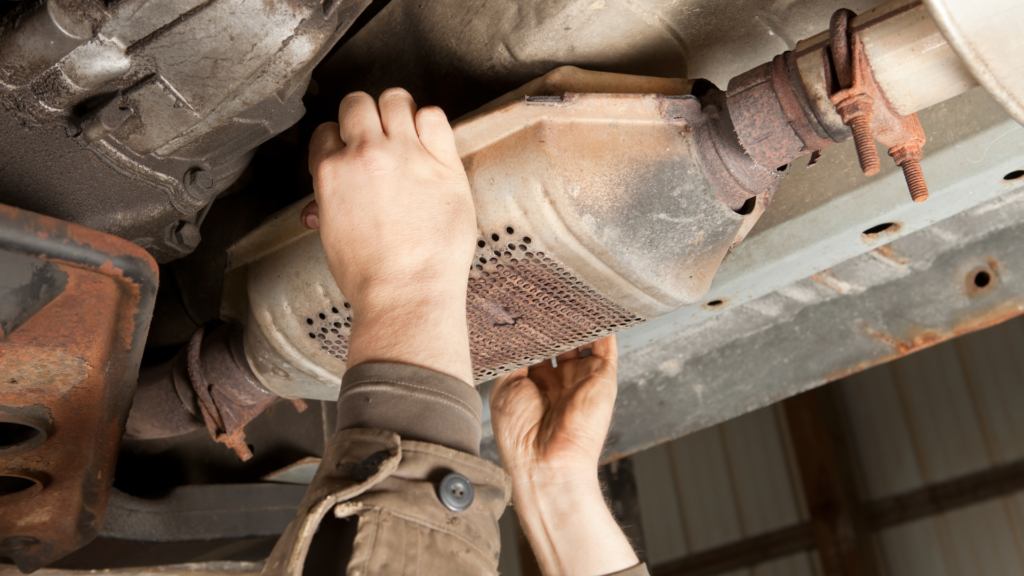What makes a car attractive to thieves? This exhaust system part can often be removed in minutes and sold for fast cash.
Think of a catalytic converter as a special filter for your car’s exhaust system that reduces harmful emissions. It’s bolted to the underside of every gas-powered car and is vulnerable to thieves because it contains metals more precious than gold. The metals convert harmful exhaust into oxygen, nitrogen, and other less harmful gasses. Catalytic converter thefts have been rising, and the devices are expensive to replace. But a few simple steps might help you protect your car.
A few key facts about catalytic converter theft and how you can help protect your car:
- Thieves target catalytic converters because they contain precious metals.
- Catalytic converters are vulnerable because they’re quick and easy to steal.
- Catalytic converters are expensive to replace.
- You can help protect your car against catalytic converter theft by etching the license plate number, parking in well-lit areas, and installing an anti-theft device.
Three ways to protect against catalytic converter theft:
1) Etch your license plate number onto your catalytic converter.
This makes the part identifiable to law enforcement. The idea is that a thief who sees the etching moves on to an easier target. Police in some communities have joined with local repair shops to sponsor etching events.
2) Park in well-lit areas.
Scott Jones, manager of Chapel Hill Tire, an auto service center in North Carolina, says most theft cases that pass through his shop occur in residential lots where cars are parked overnight. If you have to leave your car outside, the National Insurance Criminal Bureau (NICB) recommends parking in a well-lit area and make sure to set your vehicle alarm. Installing a bright motion sensor light may also dissuade potential thieves.
3) Install an anti-theft device.
Etching and careful parking might make your catalytic converter less attractive to thieves, but these preventive maneuvers don’t protect the part. Jones says an anti-theft device can help. His shop installs one by bolting a metal shield to the vehicle frame to cover the catalytic converter, which costs about $350, including installation. Other designs resemble a cage or armor plating.
“You can buy one online for about $150 and install it yourself,” says Jones. Installation involves drilling holes in the frame and attaching the device with bolts and fasteners. “The hard part is finding enough space under the car to do this. In most cases, you’ll need a vehicle lift, which is why people come to us.”
It’s more valuable than gold.
It’s not what a catalytic converter does that makes it a target for theft but what’s inside. Catalytic converters contain platinum, palladium, and rhodium — precious metals more valuable than gold. (As of May 2021, rhodium was valued at $27,900 per ounce, palladium at $2,896 per ounce, and platinum at $1,227 per ounce.) Their value has escalated recently as automakers use more precious metals in catalytic converters to reduce emissions further.
In his region, a metal recycler might pay up to $800 for a hybrid car’s catalytic converter, says Jones. Typically, recyclers pay $50 to $250 per catalytic converter, according to NICB.
Car types targeted for catalytic converter theft.
The catalytic converters used in low-emission vehicles like hybrids bring the most money because they contain more of expensive metals. Top-selling hybrids and hybrid models that don’t have a matching all-gas equivalent may be most vulnerable because they’re easier to identify. Thieves may also target trucks and SUVs because the higher ground clearance allows more accessible access to the catalytic converter.
“Thieves know exactly what they’re getting in certain models, and those are the ones we see most often with missing catalytic converters,” says Jones. He points out that all-electric vehicles (EVs) are the only ones safe from thieves because they produce no emissions and don’t need a catalytic converter.
Easy to steal, expensive to replace.
Thefts are fast and straightforward, Jones says. The thief slides under the car, remove two or three bolts, or cuts out the catalytic converter with a reciprocating saw. “The sawing is noisy, but it’s over in a couple of minutes, and the part just falls out,” he says.
The cost to replace a catalytic converter reflects the value of its components. Jones says the replacements performed by his shop range from $2,000 and $2,500, including labor.
You can reach the Community Resource Officer (CRO), Officer Charles Dreer, at 757.353.1268 or via email at charles.dreer@norfolk.gov
Remember, if you SEE something, SAY something!









